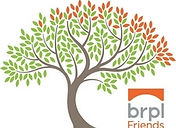Banned Books: The Fight for Intellectual Freedom
- Ilena Alvarez

- Dec 23, 2022
- 2 min read
Updated: Jan 2, 2023

Banned books are a contentious issue in many communities, as they often challenge societal norms and beliefs and can be seen as controversial or inappropriate. Despite this, banned books can also be incredibly important and valuable sources of information and perspective, and it is the role of libraries to provide access to a diverse range of materials.
One of the main challenges faced by libraries when it comes to banned books is the pressure to censor materials that may be seen as controversial or offensive. This pressure can come from a variety of sources, including community members, parents, and government officials. In some cases, libraries may feel pressure to remove certain books from their shelves in order to avoid controversy or backlash.
However, it is the role of libraries to provide access to a wide range of materials, including those that may be seen as controversial or offensive. Libraries have a responsibility to uphold the principles of intellectual freedom and provide access to information without censorship. This can be a difficult balance to strike, especially when faced with pressure to censor certain materials.
It is important for libraries to defend the right to access a diverse range of materials, even if they are considered controversial or offensive by some. Banned books can provide valuable perspectives and insights, and it is the role of libraries to provide access to these materials in a responsible and respectful manner. It is also important for libraries to provide context and resources to help individuals understand and interpret controversial materials in a meaningful way.
Overall, banned books can be a challenging issue for libraries, but it is a crucial part of their role to provide access to a wide range of materials and defend the right to intellectual freedom.
If a person is offended by a book offered in a library, they may want to consider the following questions:
Why do I find this book offensive? Is it because it challenges my beliefs or values, or is it because it portrays something that I find disturbing or inappropriate?
Is it possible that my reaction to this book is based on my own biases or prejudices?
Is it appropriate to censor this book or limit access to it based on my own personal views?
Are there other perspectives or viewpoints represented in the book that I may not agree with or understand? Is it possible that reading this book could broaden my understanding of different perspectives?
What are the potential consequences of censoring this book or limiting access to it? Will this decision impact the broader community and the access to information and ideas?
Is there a way to express my concerns or objections to the book without censoring it or limiting access to it? Could I engage in dialogue or discussion with the library or community about my concerns?
By engaging in thoughtful and respectful dialogue, individuals can help to ensure that libraries remain a place of intellectual freedom and access to a diverse range of ideas and perspectives.




Коментарі